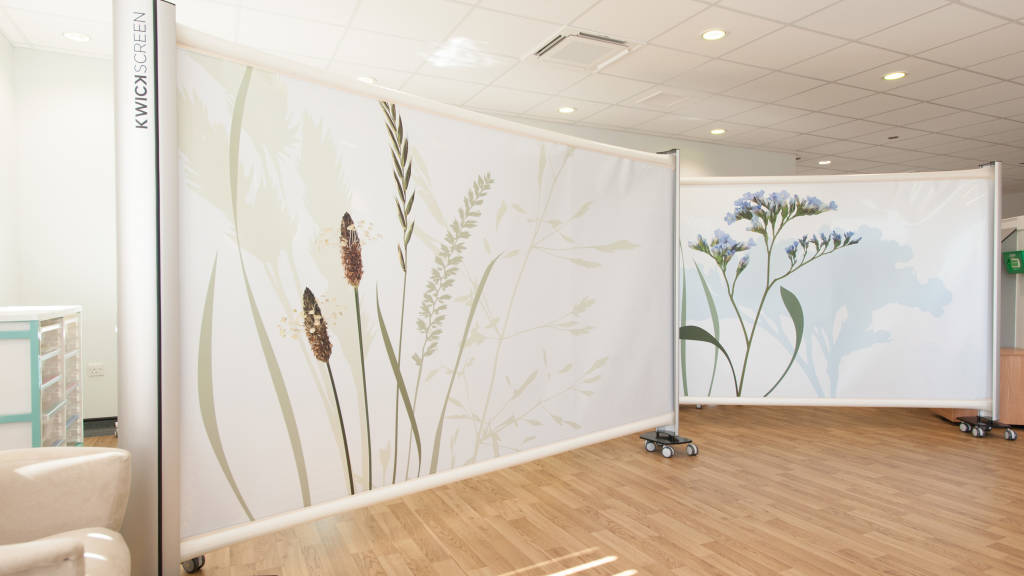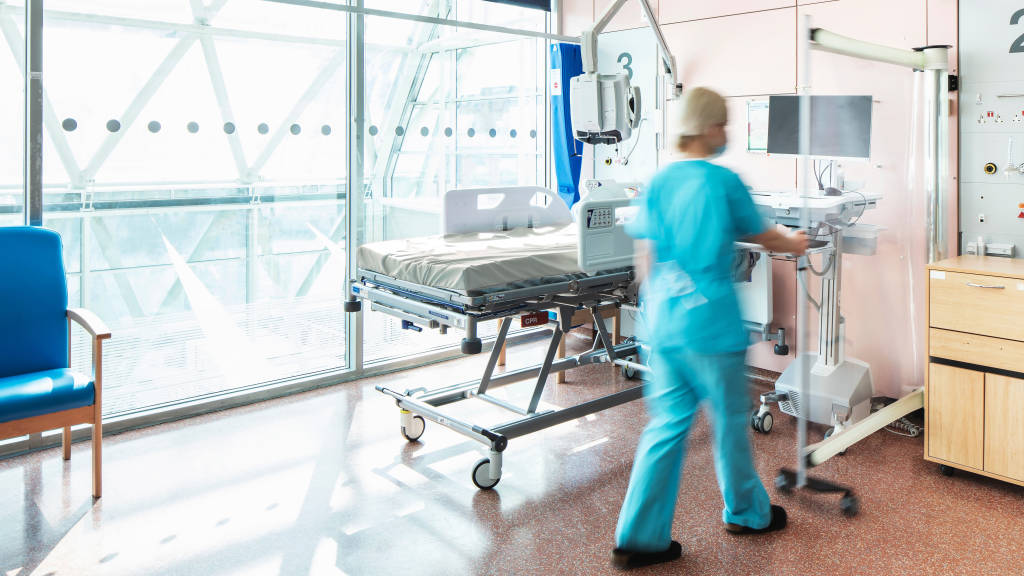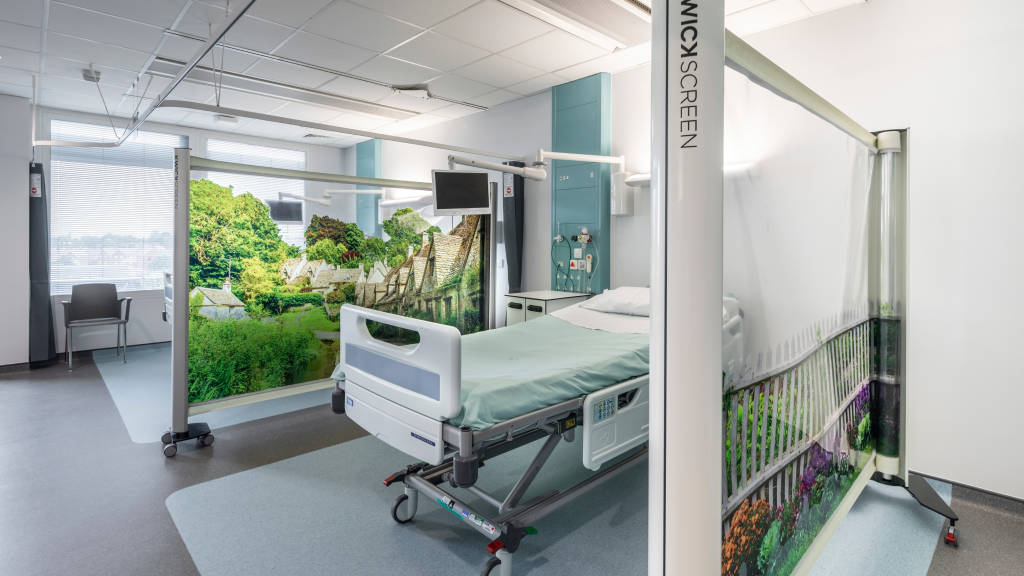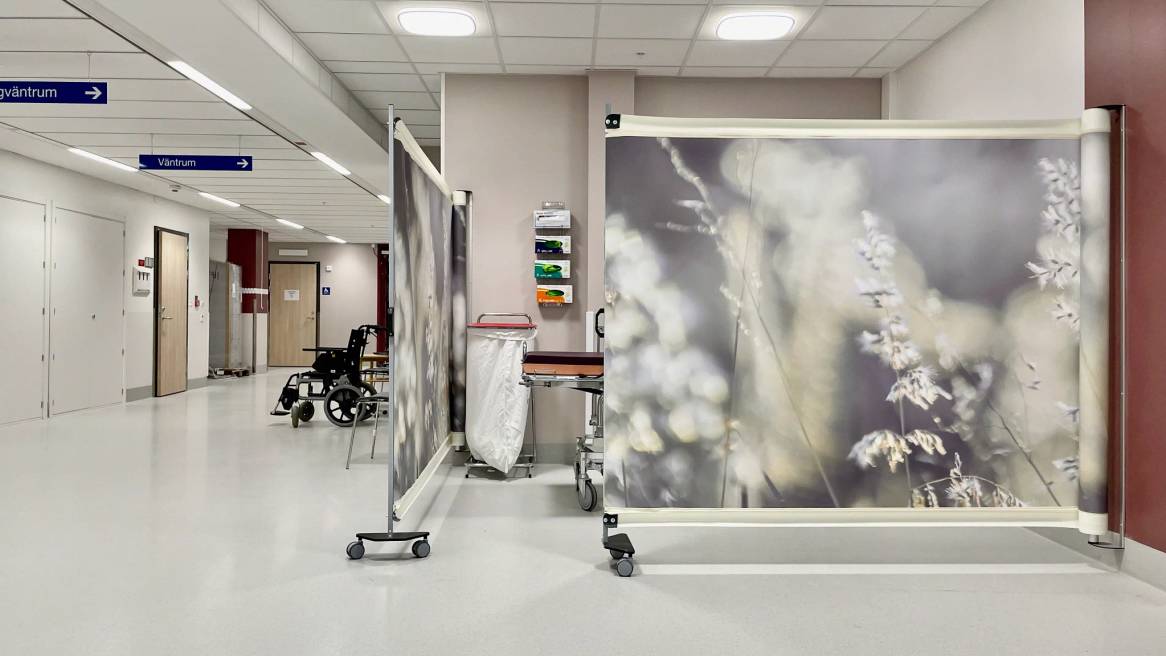Supporting Healthcare Safety and Flexibility
Steelcase Health partners with KwickScreen to address infection control and flexibility in healthcare spaces
Nobody goes to a healthcare facility to get sick. Yet Healthcare-Associated Infections (HAIs) impact millions of people each year and exacerbate the already-overburdened system by making some patients sicker and causing longer recovery times.
At the same time, administration is searching for a degree of flexibility within healthcare spaces that existing facilities can’t always accommodate. Healthcare organizations are exploring how they can create safer environments for clinicians and patients while also providing the flexibility they need.
Steelcase Health is partnering with KwickScreen to provide better solutions that support infection control and flexibility in new ways.
The Impact of Infection
According to the World Health Organization, 7% of hospital patients in high-income countries will acquire at least one HAI during their hospital stay. The statistic jumps to 15% of hospital patients in low- and middle-income countries. On average, 1 in every 10 affected patients will die from their HAI.
The U.S. Center for Disease Control and Prevention (CDC) attributes HAIs to approximately 722,000 infections and 75,000 deaths each year in the U.S. alone, as well as $28–33 billion in excess costs. The impact is staggering and has left healthcare spaces searching for better solutions to reduce the spread of infections in their facilities.
Patients often come to healthcare spaces bringing harmful diseases and bacteria with them that can quickly spread from one patient to another under the right conditions. Effectively limiting the spread of HAIs requires hospitals to create more separation between patients and provide thorough cleaning protocols and standards. However, maintaining established protocols daily in an already stressed system is difficult and unrealistic, especially with solutions and surfaces that are not easily cleanable or washable between each patient.
Finding Flexibility
Healthcare facilities also need to be change-ready and flexible, adjusting quickly to evolving needs within their spaces. Designing healthcare spaces to seamlessly reconfigure between multiple uses has only grown in importance over the past few years. Fixed components like built-in millwork or curtains constrained to ceiling tracks can drastically limit the opportunity to adapt healthcare spaces under changing circumstances.
Flexibility in healthcare design is also crucial when it comes to patient privacy, especially in multi-patient rooms. Visual barriers that can be added and removed on demand allow patients to customize privacy levels over the duration of their visit, adapting their space between doctor examinations and visiting hours with family. Without a flexible solution, open healthcare spaces are limited in their ability to serve the diverse needs of patients and caregivers.

A New Solution
Healthcare facilities can’t always offer private rooms to every patient, but even shared rooms can be made safer and more flexible when privacy and shielding is properly addressed within the space. Traditional hospital curtains are a common solution but fall short in some key ways:
- Curtains are limited to ceiling tracks and can’t be easily adjusted as room configurations change.
- Rapid airborne contamination means up to 9 in 10 curtains will be contaminated with pathogenic bacteria within one week of use.
- Without a single touch point, curtains can be more quickly contaminated through physical contact as caregivers, caretakers and patients open and close them throughout their visit.
- Curtains are difficult to clean, and contamination is so rapid that even frequent washing cannot resolve the issue.
These issues and the need for a better solution became the genesis of KwickScreen, an industry leader in portable screens for healthcare. KwickScreen designers worked with microbiologists to engineer portable screens with a single touchpoint, which makes it easy to clean with standard medical cleaning products. The screens are completely flexible and retractable, so spaces can be reconfigured on demand.
“KwickScreen was founded in direct response to the shortcomings of other industry solutions to privacy and infection control in the hospital, and each screen we’ve developed showcases how thoughtful design can improve flexibility and infection mitigation efforts,” says Alan Murrell, CEO, KwickScreen.

For 14 years, KwickScreen has been at the forefront of innovating healthcare spaces to combat hospital-borne infections and provide maximum flexibility to hospital and clinic environments. Steelcase Health has entered into a partnership with them to better serve healthcare facilities with more diverse solutions. “Our customers are looking for ways to provide healthier outcomes for their clinicians and patients. Finding new solutions to prevent HAIs has been at the forefront of the work KwickScreen has done for more than a decade,” says Pamela Krill, director of product marketing, Steelcase Health.

Bringing in Beauty
Healthcare professionals are also seeking ways to bring life into what can be sterile and uninviting hospital environments. Hospital visits often bring anxiety, especially for children and people in long-term care. Bringing artwork and other customized touches into spaces can help patients and caretakers feel more calm and comfortable during their stay.
KwickScreen offers a wide range of artwork that can be applied to their portable screens. Screens can also be fully customized, allowing hospitals to use whatever artwork best suits their needs and puts their patients at ease.
Learn more about how our partnership with KwickScreen is bringing beautiful solutions to healthcare spaces while supporting infection control and flexibility in new ways.


